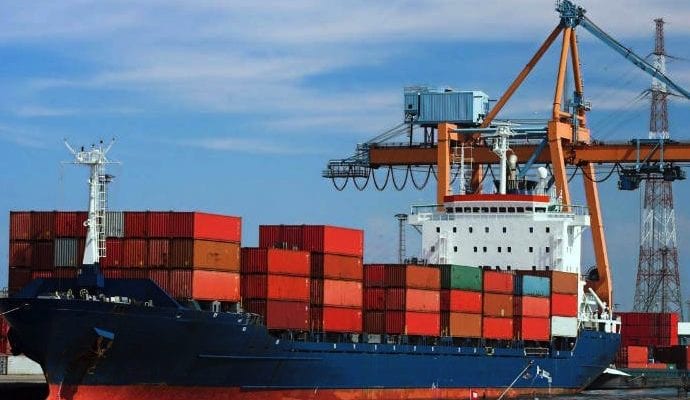About 800 export bound consignments have been stranded for weeks at the various export terminals in Lagos ports. Though the cause of the development is unclear, sources at the ports attributed it to the present coronavirus, COVID-19, induced slow down in operational processes at the ports.
Following this development, the Nigerian Shippers Council, NSC, has called on the Federal Executive Council, FEC, to consider the establishment of a dedicated export terminal to, among other things, achieve trade balance in the face of declines and instability in the crude market.
The NSC Executive Secretary/CEO, Mr. Hassan Bello, who made the call last week in his office when he played host to some maritime journalists, said the export drive has become urgent to turn the tide and avoid looming collapse of the economy.
The shippers’ council boss noted that given the major dislocations in world economy occasioned by the ongoing corona virus pandemic, critical specialisation in ports administration has become very necessary and compelling.
His said: “Presently, there are a lot of disruptions in the international supply chain on import. Even China will not export what it used to export; they will like to keep some for domestic use. Now is the time to look inwards, inward not as in diversification but deliberate attempt to look at where we have comparative advantage and that is exportation. Export should be our main line now.
“We can’t import now and even if we import, the throughput will dwindle. We have lost revenue in oil due to the vulnerability of oil. Nigeria is vast and rich; we would have been a substitute to China for raw materials globally, which we are going to process. That is why we are calling on the government to focus on export.”
Bello argued that a dedicated export terminal will not only boost seamless export shipping, but also reduce associated bottlenecks and enhance trade facilitation.
He stated: “There were about 800 trucks outside some terminals but Shippers Council has brokered with the terminals and now these trucks are going in. We want these exports to be evacuated because some of these exports are perishable and we cannot afford to have them on the roads and non-oil export is very important for our economy.
“For non-oil revenue in 2019, Nigeria got N2.5 trillion, in 2016, it was N344 billion, 2017, N629 billion, in 2018, we got N1.1 trillion. You can see it is rising. Then why can’t we build on this? There is no other time to develop our export than now; so we have to reset our struggling and crawling economy and look beyond the oil.”
Bello maintained that access to the nation’s seaports have been a major problem to trade facilitation but a designated terminal for exportation would encourage shippers to expedite actions in boost export effectively and efficiently.
Giving hints about the outlook of the new port order and specialisation canvassed by his agency, Bello stated that export goods will pass through the logistics value chain, in order to create wealth.
He noted further that the Export Strategy Committee which includes the Nigeria Customs Service, Nigerian Navy, Nigerian Ports Authority, Nigeria Export Promotion Council, Nigerian Shippers Council and the Central Bank of Nigeria, will take charge of the planning and execution of the proposed expansion of the economic export base.

